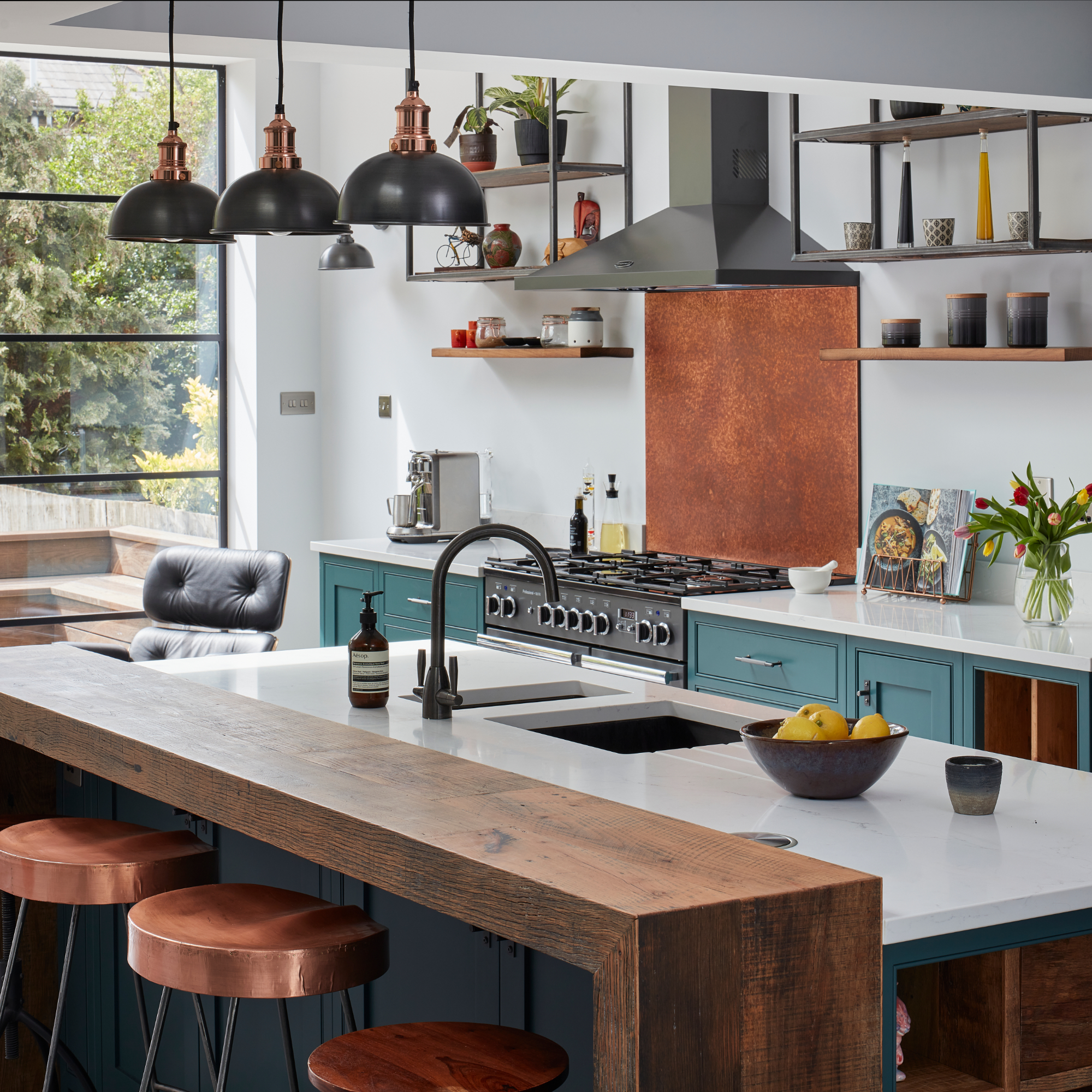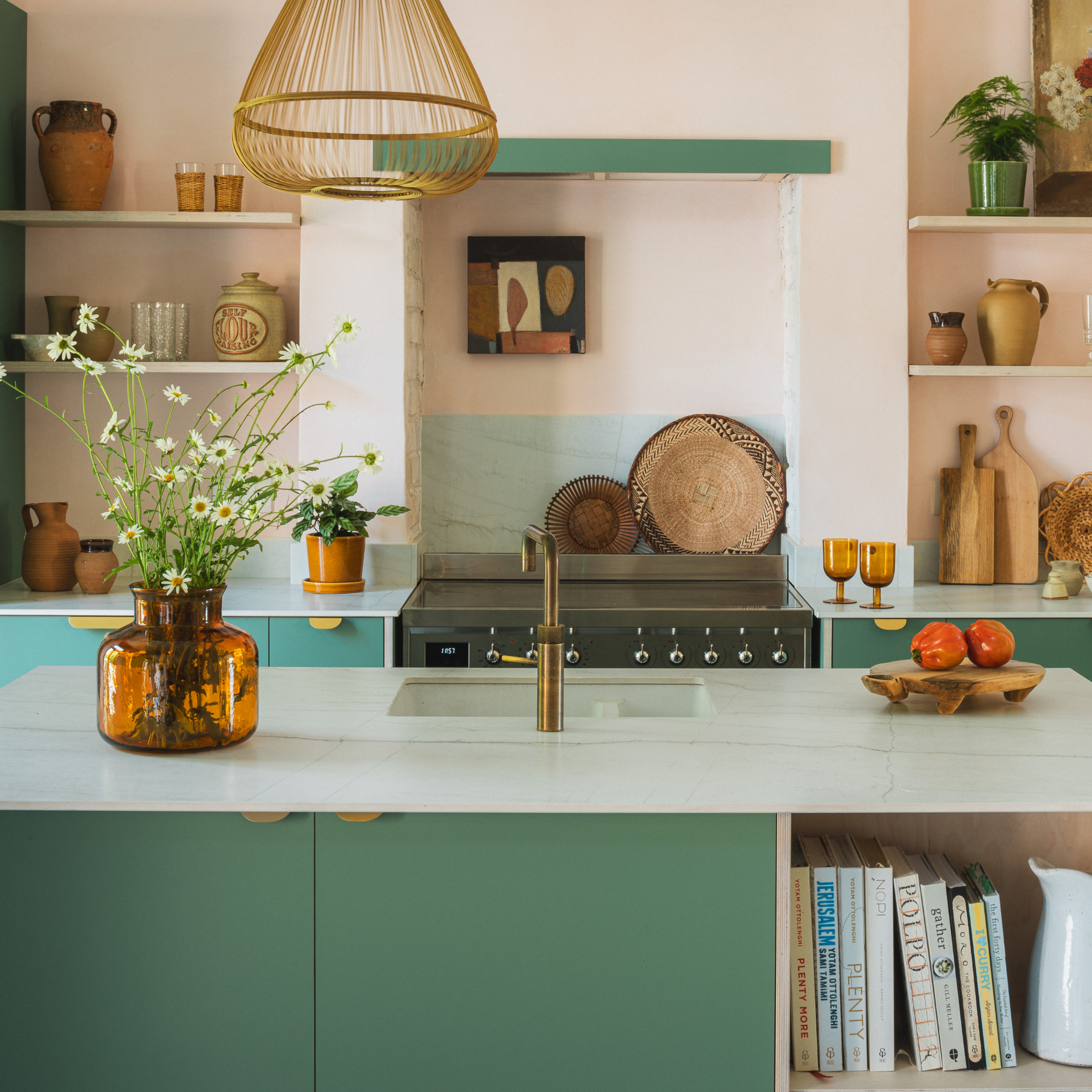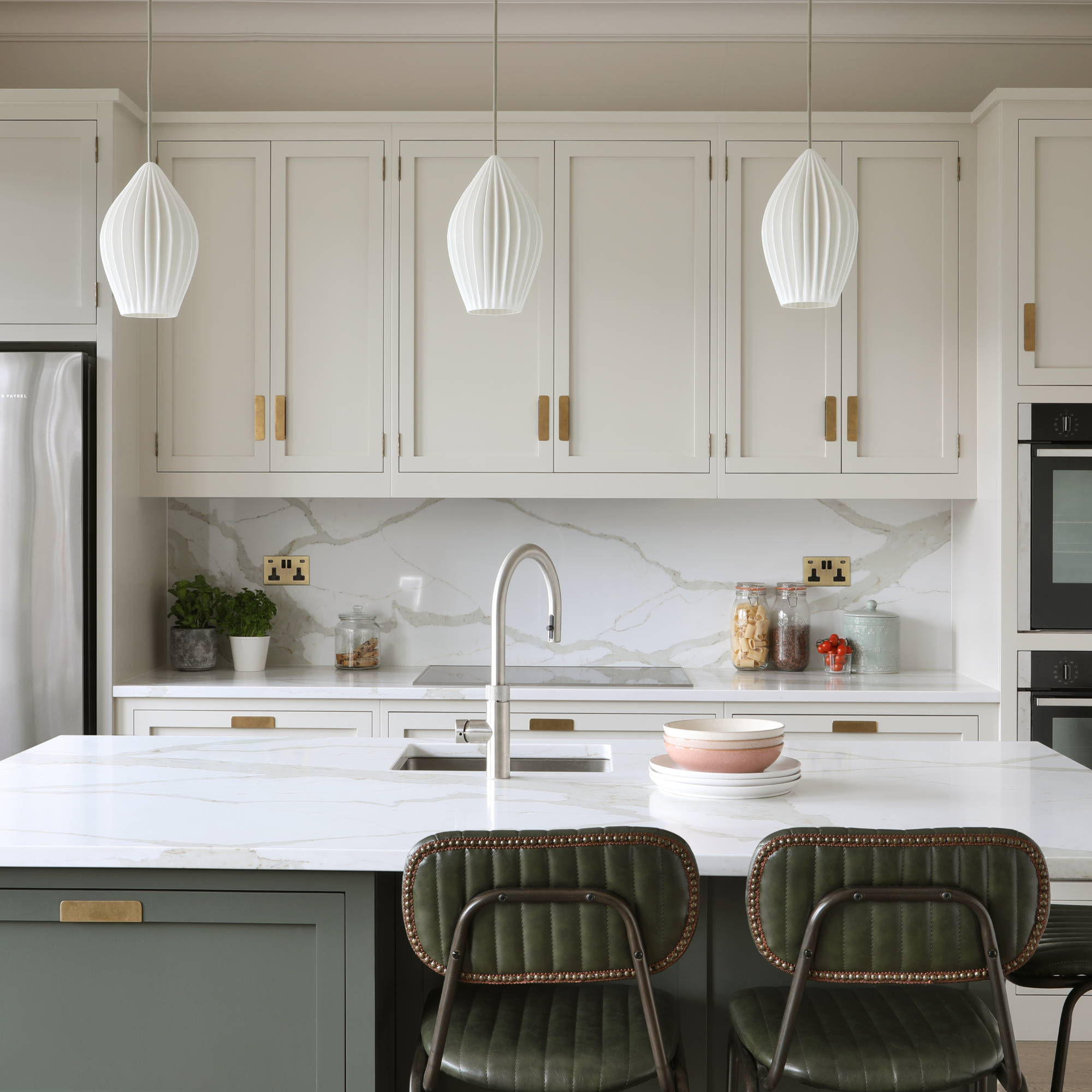
If you have a kitchen island or are planning on installing one soon, you might have asked yourself, should my kitchen island have a sink? And while it may seem like a simple question, there is actually a lot more to think about than you might realise.
When you go to design a kitchen, installing a kitchen island can immediately improve the kitchen layout and make it a lot easier to complete tasks like preparing food, cooking, washing dishes and even add additional dining space. But will adding in kitchen island sink ideas help or hinder, when it comes to how you use the space?
For many, this will be down to personal preference. Some will prefer their kitchen island to be as clear as possible, simply being a place to prepare food, entertain or perhaps even work from. While others will be looking to make their kitchen work more effectively for them and their needs.
So, we asked the experts what they would recommend, as well as what you’ll need to take into consideration before installing a sink on your kitchen island. From the pros and cons to the best placement, you won’t want to make a final decision until you’ve read further.
What should you consider before installing a sink on a kitchen island?

Whether you’re in the process of fully renovating your kitchen or simply thinking about adding a kitchen island, ‘you must consider whether you have the adequate plumbing requirements to have a sink on your kitchen island,’ says Expert Kitchen Designer at Kitchens By Holloways, Barty Rowland. ‘A waste pipe is required to run under floor level, which can be difficult in cases where there is not proper drainage, such as if you are not on the ground floor.’
The placement of the sink also depends on several other factors, such as the size, layout and intended use of the kitchen and island. But if you are ready to add one to your design what do you need to know?
What are the benefits of having a sink on a kitchen island?

Having a sink on your kitchen island can certainly make it a more versatile area as you’ll be able to wash fruits and vegetables, rinse dishes and fill pots and pans. Additionally, ‘a sink on the kitchen island allows the person cooking or preparing food to remain engaged with others in the room, rather than having their back towards guests,’ says Darren Watts, Showroom Development and Design Director at Wren Kitchens.
‘This can also be a bonus if keeping an eye on small children at dinnertime,’ adds Chris Dance, Showroom Manager at InHouse Inspired Room Design.
‘Whether it's chatting with family members or entertaining guests, having the sink centrally located encourages interaction and creates a more sociable atmosphere,’ Darren continues.
Plus, freeing up the space under a window, which is typically taken up by a sink in many kitchens, allows you to use this area for other purposes, ‘such as a window seat, statement radiator, shelving or anything else that you want extra room for,’ chimes in Tom Howley, Creative Design Director at the eponymous kitchen company.
What are the negatives of having a sink on a kitchen island?

‘Kitchen islands are often installed to increase worktop space and improve the overall functionality of a space,’ suggests Jen Nash, Head of Design at Magnet Trade. ‘By installing a sink into an island you are reducing the amount of space available for the likes of food preparation, socialising etc. And in turn compromising its functionality.’ This can be especially problematic for small kitchen ideas, which are already short on counter space.
Another negative, that the experts all agree upon, is its potential to look untidy when dirty dishes begin to build up. Because an island typically becomes the hub of the kitchen, this can detract from the overall aesthetic and make the kitchen look messy and not particularly well organised.

‘One solution could be to install an undermount sink, which helps conceal the mess,’ states Charlie Smallbone, Founder of Ledbury Studio. As ‘these sinks are installed below the countertop level, it makes it harder to see the dishes and debris from the dining side.’ But, if you know that dishes will undoubtedly pile up, having a sink in your kitchen island might not be the best option for you.
And finally, like any kitchen add-on, integrating a sink into your kitchen island will ‘add time and money to your project,’ according to Michael Reeve, Kitchen Design Expert at Kitchinsider. If you’re retrofitting an existing island, you may need to tear up the floor and replumb to do so, too.
FAQs
Where should a sink be placed on a kitchen island?

If you’ve decided to add a sink, the next thing that you’ll need to consider is where to place it. Unlike a traditional kitchen sink, which might be situated looking out a window, you have much more control when it comes to placing a sink on an island.
‘It makes sense for the sink to be placed on the side of the island that is closest to the functional part of the kitchen in order to create a strong working triangle of the sink, fridge and hob,’ explains Melissa Klink, Creative Director at Harvey Jones. ‘This also prevents the sink and any dishes getting in the way of the more sociable part of the island.’
Additionally, ‘when planning the position of your primary sink you need to ensure ample space on either side – for used dishes and a drainage area respectively,’ outlines HUSK Kitchens’ Founder, Dave Young. ‘Generally, this means leaving around 60cm either side of the basin.’ So, you’ll need to think where on the island this would be.
Is it better to have a sink or a hob on a kitchen island?

When deciding between having a sink or a hob on a kitchen island, you’ll want to work out which one will be the most beneficial to you and your family.
‘If you enjoy entertaining and hosting gatherings, a hob on the island can be a practical choice as it allows you to interact with guests while preparing meals,’ admits Claire Garner, Director of Claire Garner Interiors.
‘However, if space is limited or if you prefer a more streamlined look, a sink may be a better option, offering convenience for food preparation and cleanup without cluttering the island's surface.’
You really have to weigh up which one will make your kitchen more functional for you.







